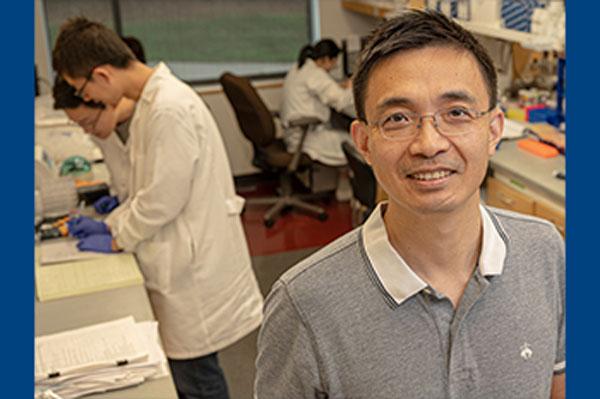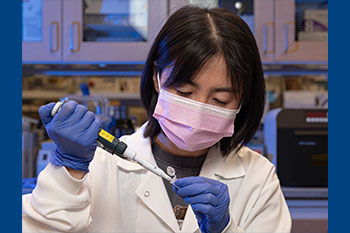Getting Creative with Gene Therapy to Improve Outcomes: Dr. Qianben Wang

Since joining Duke’s prostate cancer research team in 2017, Qianben Wang, PhD, has become a pivotal figure in the fight against prostate cancer. Initially focusing on regulatory mechanisms, Wang's journey has evolved into translational research, with a primary focus on developing cutting-edge gene therapies for prostate cancer.

Wang and his team are researching a gene therapy approach that targets pioneer transcription factors, which are special proteins that have the ability to unlock tightly packed DNA. They’re doing this with the precision of CRISPR technology, which is similar to microscopic molecular scissors. By specifically keying in on these transcription factors, it may be possible to disrupt the underlying processes that contribute to castration-resistant prostate cancer (CRPC) progression. This innovative strategy holds promise for improving survival outcomes for those facing CRPC.
Contributing to his success, Wang has secured grants with significant funding. He also credits his team’s multifaceted approach, saying “These efforts are leading to many exciting results that will inform the development of more effective options for prostate cancer.”
Awards and Honors:
- National Institutes of Health (NIH) grant titled “Targeting MED31-Driven Transcription Recycling in Lethal Prostate Cancer”
- NIH grant titled “Systems Analysis of the Prostate Cancer Epigenome”
- Department of Defense (DoD) grant titled “Targeting Oncogenomic Function of N-Myc to Inhibit Neuroendocrine Prostate Cancer Visceral Metastasis”
- Elected Director at Large of Society for Basic Urological Research
- DoD grant titled “Targeting Neuroendocrine Prostate Cancer by Engineering 3’ Untranslated Regions”